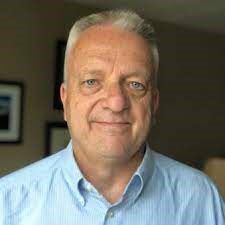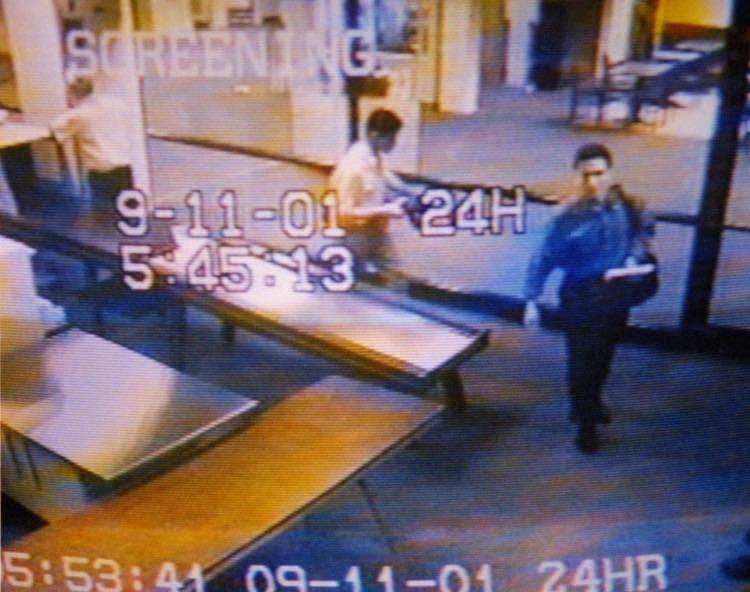It is a day no one wants to recall. A day of fear, shock and pain.
On Saturday, most Americans who can remember Sept. 11, 2001, will think back to where they were that Tuesday morning when 19 Islamic extremists shocked the United States and the world by carrying out a simultaneous hijacking of four passenger jets, bent on using them as missiles to destroy American landmarks.
Three of them found their marks by striking buildings — the north and south towers of the World Trade Center in New York City, the Pentagon in Washington, D.C. — while the fourth crashed in a field in Shanksville, Pa. as passengers on board fought back against the hijackers. In all, nearly 3,000 people were dead when it was over.
What perhaps remains the most chilling detail for Mainers about the attacks is the confirmation that two of the terrorists, Abdul Aziz al Omari and the attacks’ mastermind, Mohamed Atta, spent time in Maine the day before the attacks, ultimately beginning their fateful mission at the Portland Jetport. After two decades and countless hours of investigators poring over details and conducting interviews, however, just why they came here first remains a disquieting mystery that may never be solved.
One person who clearly remembers where he was that morning is Eric Conrad. At the time, he was the managing editor at the Portland Press-Herald, in his office in the paper’s newsroom when the city editor, Eric Blom, came in to relay the news that a plane had struck one of the towers in New York. It was 8:46 a.m.

“Eric, you’re not going to believe what happened,” Conrad remembered hearing.
Like most people in those first few minutes, Conrad entertained the idea that this was a horrible, tragic accident, some sort of catastrophic mechanical failure. Then, at 9:03 a.m., while everyone in the newsroom was watching on television, Conrad recalled, a second airliner removed all doubt when it struck the south tower.
“At that point it’s like, ‘Oh my God, it’s not an accident,’ ” Conrad said.
Like most news organizations worldwide, Conrad said, it was all hands on deck, with nonstop coverage even after the paper produced a special afternoon edition — unusual in those days.
As the journalists continued working, Conrad said word leaked to the newsroom either the day of the attacks or the next day that there was a single, unclaimed piece of luggage at Boston’s Logan International Airport connected to one of the hijackers, and the tags on the luggage clearly indicated its origin: Portland, Maine. The discovery uncovered a chilling new line of inquiry for Conrad and everyone else in the Pine Tree State.
“We were like, ‘Are you kidding me?’ I mean, what were the odds?” he said.
In 2002, Congress and President George W. Bush created the National Commission on Terrorist Attacks Upon the United States, otherwise known as the 9/11 Commission, to investigate the attacks. In 2005, the commission produced a comprehensive report, including the movements of Atta and Omari through Portland on Sept. 10-11, 2001. Details from the report, along with a declassified report from the FBI describing the movements of all the terrorists leading up to the attacks, paint a remarkably mundane picture of what would become the last afternoon and evening of both men’s lives.
According to the documents, Omari checked out of Room 225 of the Park Inn Hotel on Boylston Street in Boston at 12:22 p.m. on Sept. 10. Atta picked him up in a blue Nissan Altima he had earlier rented from Alamo Rent A Car.
They then drove up to South Portland together. Many of the incidents cited in the FBI report do not have exact times listed, but witnesses spotted both men at one point at Jetport Gas and Convenience Store at 446 Western Ave., South Portland. They were also both seen at Walmart at 451 Payne Rd. in Scarborough, where Omari bought a six-volt battery adapter.
At some point during the day, Atta checked into the Comfort Inn at 90 Maine Mall Rd., South Portland, room 233. He used a Visa card to pay, and indicated there would be two adults staying in the room. At some point, Atta also used an ATM at the hotel to withdraw $117. The FBI report indicates Omari was with him.
Management at the Comfort Inn did not respond to a request for comment
Witnesses also reported seeing “two Middle Eastern men” at the Pizza Hut on Maine Mall Road in Portland. Investigators later found a Pizza Hut box in the trash bin behind the Comfort Inn. Investigators also discovered that someone made a call from a pay phone at the Pizza Hut location to a cell phone belonging to Marwan al Shehhi, one of the hijackers who would ultimately be on United Airlines flight 175. The call lasted four minutes.
If it was Atta who made the phone call, it would not be the only call he made that day. The FBI report cites a total of 14 separate phone calls throughout the day on Sept. 10, either made by or to Atta by cell phone. While the other parties are not mentioned, the report indicates the calls bounced off several cell phone towers in the metropolitan Boston area.
The FBI report also indicates at 8 p.m., Omari and Atta were seen on surveillance video at a “Fast Green” ATM in the parking lot adjacent to UNO’s Restaurant at 250 Maine Mall Rd., South Portland. Omari withdrew $40.
At 5:33 a.m. on Sept. 11, 2001, both men checked out of the Comfort Inn. The FBI report indicates Omari made another cash withdrawal at the ATM near UNO’s before both men went to Portland Jetport to catch a commuter flight from Portland to Boston.
At approximately 5:40 a.m., both men arrived at the ticket counter and checked in to pick up tickets for US Air flight 5930 to Boston, which was scheduled to depart at 6 a.m. The pair, according to the FBI, checked a total of two pieces of luggage and each man also had one piece of carry-on luggage.
The men spoke with ticket agent Michael Tuohey that day. Tuohey could not be reached for this story. In 2004, investigators with the 9/11 Commission recorded a phone interview with Tuohey, asking him about the exchange, which took roughly three minutes before both men’s tickets and baggage tags were printed at 5:43 a.m.
According to the interview recording with Tuohey obtained from the U.S. National Archives, Tuohey said it was a relatively routine check-in, with no red flags.
“Nothing they said or did raised any suspicions at all,” he told the commission’s investigators. “They conformed to all the guidelines of checking in.”
The only problem, Tuohey said, came when he told Atta that, after arriving in Boston, Atta and Omari would have to check in once again before transferring to American Airlines Flight 11. Atta, Tuohey said, was angry, saying, “One-stop check-in, one-stop check-in,” referring to a convenience at the time that allowed passengers to check in once for multiple flights, even on different airlines.
“It just seemed, his jaw seemed a little clenched,” Tuohey said. “He was somewhat agitated, and my thinking was, ‘Uh oh, this guy’s going to give me a hard time,’ and all of a sudden, he just spun on his heels and walked away.”
Throughout the transaction, Omari, Tuohey said, barely spoke, only shaking and nodding his head in response to Tuohey’s standard screening questions about their luggage, such as did they leave their bags unattended for any period of time.
“Atta said, ‘no,’ and (Omari) just shook his head, ‘no,’ ” Tuohey told investigators. “I don’t think he could even, I don’t think he understood a word I was saying for some reason, although it didn’t register at the time.”
From there, most of Atta and Omari’s movements are well-documented. Both men boarded the flight on time and arrived in Boston at 6:45 a.m. to transfer to American Airlines Flight 11. Before boarding, Atta received two calls on his cell phone coming from a pay phone at Terminal C in the airport. The commission’s report indicates one call, at 6:52 a.m., was from Shehhi.
“They spoke for three minutes. It would be their final conversation,” the commission’s investigators wrote in their report.
Atta and Omari, along with fellow hijackers Satam al Suqami, Wail al Shehri and Waleed al Shehri, boarded Flight 11, which was originally bound for Los Angeles. Shehhi, along with hijackers Fayez Banihammad, Mohand al Shehri, Ahmed al Ghamdi and Hamza al Ghamdi, boarded United Airlines Flight 175, also bound for Los Angeles. At around the same time, at Dulles International Airport in Washington, D.C., Khalid al Mihdhar, Majed Moqed, Hani Hanjour, Nawaf al Hazmi and Salem al Hazmi all boarded United Airlines Flight 77, also bound for Los Angeles. In Newark, N. J., Saeed al Ghamdi, Ahmed al Nami, Ahmad al Haznawi and Ziad Jarrah boarded United Airlines Flight 93 to Los Angeles.
None of the planes reached their destinations. Flight 11 struck the north tower of the World Trade Center in New York. Flight 175 struck the south tower. Flight 77 struck the Pentagon in Washington. Flight 93 crashed into the field in Shanksville.
To this day, no one, including the 9/11 Commission, has been able to definitively say why Atta and Omari chose to take such a circuitous route to Boston.
“No physical, documentary, or analytical evidence provides a convincing explanation of why Atta and al Omari drove to Portland, Maine, from Boston on the morning of September 10, only to return to Logan on flight 5930 on the morning of September 11,” the commission’s investigators wrote in 2005. “However, Atta reacted negatively when informed in Portland that he would have to check in again in Boston.”
During the 2004 interview with the commission’s investigators, Tuohey, when asked about potential security improvements in light of the attacks, suggested it was a good thing that he didn’t give Atta and Omari their boarding cards for American Airlines Flight 11, as Atta had wanted. If he had, Tuohey said, “That would have eliminated another chance to catch them,” meaning at a second check-in in Boston.
Atta and Omari may have had to check in the hard way after all, but Tuohey said he regarded the convenience of single check-ins as a security risk.
“This one-stop check-in, I don’t think it’s a very good idea,” he said.
Today, Conrad noted that security has changed, and so has the experience of being an airline passenger.
“Flying was much more fun, easy, carefree than it is now,” he said.
Like many other Americans, Conrad said he has been reflecting on the attacks’ impact on America’s perception in the world, a perception that the attacks on Sept. 11, 2001, changed forever.
“I would think that a lot of Americans realize there are a lot of people out there that hate us,” he said. “It really opened our eyes that we live in a dangerous world, and we can be victims, too.”





